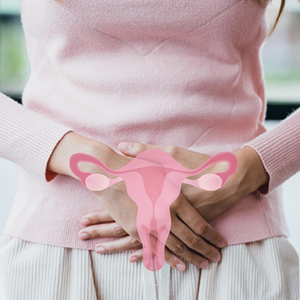Gynecologist in Anantapur
Nearly every other woman irrespective of their age or geographical location that they hail from, is likely to encounter a gynecological issue at some stage in her life. Such issues can be painful, and this discomfort is often dismissed as a normal occurrence, particularly when it coincides with the menstrual cycle. According to Dr. G.P. Sandhya Reddy, a gynecologist in Anantapur, the pain typically manifests in the pelvic area, which can lead to confusion with other medical conditions, including gastrointestinal, urinary, musculoskeletal disorders, or abdominal muscle strains, as well as psychogenic factors stemming from past physical, psychological, or sexual abuse. It is important to recognize that pelvic pain may signal a more serious underlying condition and immediately consult Best Gynecologist in Anantapur, Dr. G.P. Sandhya Reddy
Causes of issues
Numerous factors contribute to gynecological inflammation, with many stemming from stress or women's lifestyle choices. Below are some common causes of gynecological disorders at Best Gynecology hospital in Anantapur:

- Unprotected intercourse - Women face an increased risk of gynecological infections when engaging in unprotected sexual activity with partners who may have been exposed to male genital infections. Furthermore, aggressive or improper sexual practices can lead to abrasions in the vaginal area, creating an environment conducive to bacterial growth and subsequent gynecological issues.
- Abortion - Gynecological inflammation may arise from abortion procedures conducted by inexperienced practitioners, particularly in unreliable medical facilities or inadequately sterilized operating rooms. Additionally, inadequate post-abortion care can allow harmful bacteria to proliferate, leading to inflammation.
- Lack of rest, poor diet, and stress - Stress and anxiety can disrupt hormonal balance, significantly impacting women's physical health. This may manifest as menstrual irregularities, delayed cycles, alterations in the vaginal microbiome, and changes in pH levels, all of which can promote the onset of gynecological diseases needing Gynecology Treatment in Anantapur.
- Inadequate feminine hygiene practices - The vagina provides a moist environment that is ideal for the proliferation of bacteria and pathogenic fungi. Consequently, improper hygiene practices can lead to gynecological disorders. Moreover, factors such as wearing tight underwear, experiencing menopause, declining health, pregnancy, or allergies to certain cleansing products can also contribute to the development of these conditions.
Avoiding Gynecological issues
Gynecological disorders are often linked to lifestyle choices as per Gynecology Clinic in Anantapur. Consequently, the most effective method of prevention involves altering daily self-care practices, such as: Engaging in safe sexual practices can help reduce the likelihood of sexually transmitted gynecological diseases. Additionally, the anxiety associated with contemporary living contributes to an elevated risk of these conditions. Thus, adopting a healthy lifestyle characterized by a balanced diet, adequate rest, and stress management can significantly mitigate the occurrence of gynecological issues. As per Best Gynecology doctor in Anantapur, regular physical activity enhances the immune system and bolsters the body's defenses. Moreover, having a comprehensive understanding of the female anatomy and maintaining proper hygiene are essential in preventing gynecological diseases.
Many gynecological conditions typically do not present symptoms until they reach an advanced stage. As a result, individuals may remain unaware of the presence of a cyst, tumor, or mass unless they participate in a routine examination conducted by gynecologist at Best gynecologist hospital in Anantapur, Sunray SVR Hospital. Therefore, it is important for women to remain conscious Prior to making a diagnosis, our gynecologists will first evaluate your gynecological history and subsequently carry out necessary diagnostic procedures. It is essential to prioritize your health by maintaining regular appointments with a gynecologist.
